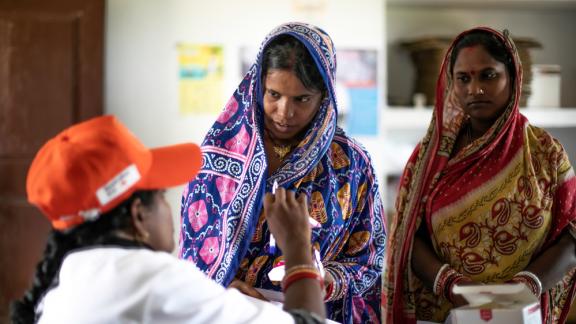Self-care interventions have the potential to revolutionise healthcare.
They expand access to healthcare for all by empowering people to take charge of their health, if and when they choose to do so. WHO’S 2019 guidelines on self-care interventions for health, which focused on sexual and reproductive health and rights (SRHR), spoke about how self-care interventions for SRHR such as self-managed abortion through abortion pills, and self-testing kits for HIV and HPV, and self-injectable contraceptives like the DMPA-SC, make sexual and reproductive healthcare more accessible and affordable.
WHO recently updated its guidelines on self-care interventions and emphasised the importance of implementing self-care strategies as per the needs of people, especially the LGBTI+ community, persons with disabilities, and young people.
We spoke with Shampa Sengupta, a Kolkata-based disability rights activist working at the intersection of gender and disability, on the role self-care interventions can play in expanding access to sexual and reproductive health and rights for persons with disabilities, particularly women and non-binary people.
“Before talking about the impact of self-care interventions for SRHR for women and non-binary people with disabilities, we need to understand that disability is a spectrum”, said Shampa, founder of Sruti Disability Rights Centre. Explaining that different women with disabilities will have different experiences accessing self-care methods, Shampa added, “We need to think of how a woman with limited mobility can go out and buy abortion pills or a woman with visual impairment read the instructions on self-test kits. Accessing these self-care methods is a challenge for women with disabilities.”
Then how do we go about making self-care interventions, which include medicines, devices, diagnostic tools and technologies, and digital interventions accessible for all? Shampa suggests adopting the process of Universal Design when planning self-care intervention strategies. Universal Design is the process of creating products and environments that are accessible by everyone, regardless of a person’s ability.
when
region
South Asia
Subject
Disability

Any new SRH intervention will be helpful for persons with disabilities if the concept of Universal Design is kept in mind. When designing new products, are companies including Braille signage in the instructions or using sign interpretations in their advertisements? If not, how do people with disabilities access self-care methods?

Through the Universal Design process, self-care products and services can be made accessible for persons with disabilities, considering the diversity of needs. Shampa explains, “Any new SRH intervention will be helpful for persons with disabilities if the concept of Universal Design is kept in mind. When designing new products, are companies including Braille signage in the instructions or using sign interpretations in their advertisements? If not, how do people with disabilities access self-care methods?”
The inaccessibility of self-care services and products remains a big barrier for people with disabilities when it comes to adopting self-care methods for their sexual and reproductive health. However, merely raising awareness about this inaccessibility will not suffice.
“We must talk to people with disabilities, take into account their needs. We need to advocate with governments and policy makers to urge companies that create self-care products to adopt the Universal Design concept”, said Shampa. Integrating disabled people into self-care planning and implementation strategies can ensure that self-care interventions are equitable and accessible for all.
Shampa Sengupta is a Kolkata based activist working on gender and disability rights. You can find Shampa on LinkedIn and X.











